Advertisement
Tencent and Apple, as the two giants in the technology industry, have been attracting a lot of attention. Recently, the two sides have once again fallen into dispute over the ‘Apple tax’ and other issues, causing widespread discussion and concern, and even once rumours that Apple does not allow the installation of WeChat, Apple will soon be off the shelves of WeChat and other rumours, so that users are worried.
First of all, let's understand what ‘Apple tax’ is. In layman's terms, ‘Apple tax’ is Apple's commission on developers' income. According to Apple's rules, all apps should in principle be purchased through the App Store, and consumers pay the fees to the App Store first, which then transfers the money to the developers, and in this process, Apple needs to collect a 30% levy. Not only that, for in-app purchases, such as the purchase of game equipment, skins, etc., Apple also want to take a cut, the proportion is generally 30%, for some continuous subscription and other in-purchase behaviour, the proportion of the cut is at least 15% or more.
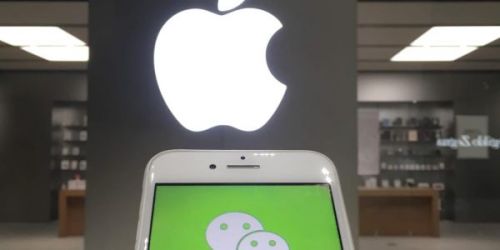
As early as 2017, Tencent and Apple had a dispute over whether rewards for WeChat's public number should be subject to the ‘Apple tax’. In the end, Tencent cancelled the payment function of ‘reward’ and replaced it with the gift function of ‘like the author’, but the fundamental contradiction between the two companies has not been resolved. The focus of this dispute lies in WeChat's built-in small programme function. WeChat in 2017 on-line small program, users can not download to get close to the full software function service, which to some extent bypassed the Apple payment interface, especially small games can even directly in WeChat to provide paid recharge function, to avoid the ‘Apple tax’.
Apple has reportedly issued warnings to Tencent and ByteDance since May this year, asking them to plug payment loopholes in WeChat and Jitterbug, or else they may refuse to update WeChat and Jitterbug. An Apple spokesperson, citing the company's guidance document, said that all sales of digital goods must go through Apple's system, or the company's review team may reject submissions of apps that violate the rule. Sources said that in the first half of 2024, WeChat's mini-games earned more than 12 billion yuan, which may be the reason why Apple began to pressure Tencent this year.
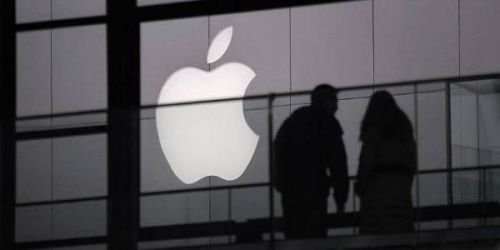
For a while, the rumour that the iphone 16 series does not support WeChat was widely circulated on Chinese social media, and even made it to the top of the list of microblogging hot searches at one time. Some netizens believe that if Apple really shelves WeChat, the attractiveness of Apple mobile phones will be greatly reduced, after all, WeChat has a huge user base in China, is an indispensable communication and social tools in people's daily lives. However, a number of industry insiders said, iphone16 series does not support WeChat a few impossible, WeChat is not likely to be taken down from the App Store, and the latest ios18 beta, WeChat is also in the normal download state.
In the face of this situation, Tencent's management said in a recent earnings call that it is not currently commercialising small games on ios through inbound purchases (bypassing payments), and that related discussions are ongoing. Tencent's chief strategy officer James Michel also said that Tencent is negotiating with Apple on revenue sharing for ios games, and expects to reach a positive outcome, but will continue to maintain the status quo if no progress is made in the negotiations.
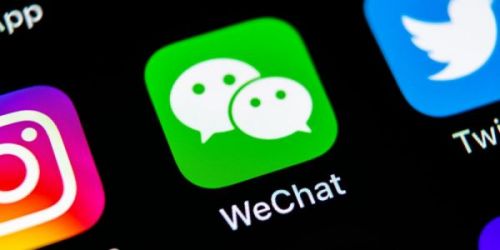
For the ‘apple tax’, developers and game makers generally expressed dissatisfaction, that the industry bitter ‘apple tax’ for a long time. Heart network ceo Huang Yimeng commented on the social platform: ‘Although Apple has not dared to directly shelve WeChat jittery, but can be stuck in the new version of the update does not give them over the trial, is the evil of closed platform, as long as the user does not give the right to freely install software, the platform can always be stuck in the app blackmail tax, today you can ask for 30%, tomorrow you can ask for 50%, everything by the closed platform themselves. the closed platform itself says.’ A-share small game listed company namechen health board secretary Chen Dongsong said, apple as a channel party, extract commission for suppliers is indeed higher, as a developer, from the cost point of view, looking forward to reduce the corresponding fees.
From Apple's point of view, it also has its own considerations for charging ‘Apple tax’. On the one hand, Apple's ecosystem has always been known for its closed nature. Theoretically, all apps can only be downloaded through the App Store (excluding jailbreaks). Since the distribution channel of apps is single, Apple can easily monitor and grasp the behaviour of all apps to ensure user experience and safety. Charging a commission for in-app purchases is also a business model for Apple that brings it considerable revenue. Data shows that in 2019, App Store sales amounted to as much as 50 billion U.S. dollars, even according to a low percentage of the estimated draw, the total amount of ‘Apple tax’ also accounted for a certain proportion of Apple's total revenue.

However, at a time when the rapid growth of the mobile Internet is no longer the case, the cost of acquiring new users is high, and Internet companies are more and more dissatisfied with the ‘Apple tax’ of up to 30%. In the past few years, Apple's 30 per cent tax rate, which has lasted for more than a decade, has been loosened due to the fact that regulators in some countries have begun to launch antitrust investigations against Apple one after another. For example, in 2020, Apple launched a preferential policy, announcing that for small businesses with annual revenue of less than $1 million, the App Store commission rate will be reduced to 15 per cent, and in 2021, Apple began to support U.S. developers to channel users to other payment channels through email and other means. Since then, Apple has gradually liberalised third-party payments in some countries, but it still requires a commission and applies almost different charging policies in different countries and regions.
The dispute between Tencent and Apple is not only a game of interests between the two companies, but also reflects the contradictions and challenges of the entire technology industry in the application distribution and revenue sharing model. On the one hand, Apple wants to collect the ‘Apple tax’ to maintain the operation and development of its closed ecosystem; on the other hand, Tencent and other developers want to reduce costs and gain more profit margins, while also exploring how to find more flexible business models under Apple's ecological rules.
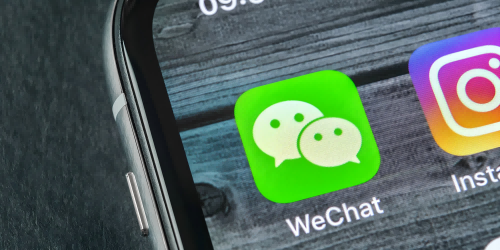
For users, they are more concerned about whether they can continue to use WeChat and other apps conveniently, and whether they will be affected in the process. If Apple really takes down WeChat, it will undoubtedly bring great inconvenience to users, which may cause some users to turn to other platforms. However, judging from the current situation, both sides are actively communicating and negotiating, trying to find a balance point to achieve mutual benefit and win-win situation.
In the future, the co-operative and competitive relationship between Tencent and Apple will continue. Both sides may reach a compromise and co-operation in certain aspects to jointly promote the development of the industry; or they may continue to disagree and compete on some issues. Either way, the dispute will prompt the tech industry to think more deeply about the reasonableness of the app distribution and revenue-sharing model, and how to maximise the interests of all parties under the premise of safeguarding the rights and interests of users. At the same time, it also reminds us to pay attention to the far-reaching impact of competition and cooperation between tech giants on the industry and society as a whole.
Advertisement
Advertisement
- Previous article
- PUBG Mobile Esports Generated 200 Million Hours of Viewing in 2020
- Next article
- Analysis of the Apple sales slump: A multi-perspective view!
Advertisement
OTHER NEWS

Observation | Country Multipliers Makes Monetization Easier for Developers
BY Rose
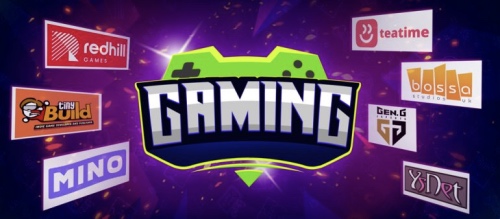
The Games Fund Launched a $50 Million Early Investment Fund to Invest in American and European Companies
BY Hunt

A 9-year-old Boy Earning 200 Million Per Year Through Toy Evaluation, Why Could This New Generation of Bloggers Take the Lead? (I)
BY Ward
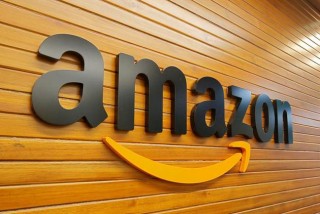
Amazon Is in Negotiation to Buy Wondery, Quoting $300 Million to Gain a Foothold in Podcasting
BY Phyllis

Fortnite: Top up and Get 2 Months of Disney+ Service for Bonus
BY Julie

Latest Report on Digital Payment in Southeast Asia
BY Marilyn
RECENT NEWS
-
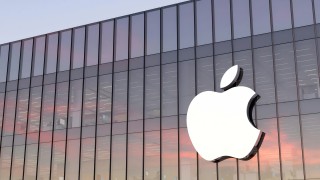
Analysis of the Apple sales slump: A multi-perspective view!
-

The Tencent-Apple dispute: The ripples triggered by the ‘Apple tax’.
-

PUBG Mobile Esports Generated 200 Million Hours of Viewing in 2020
-
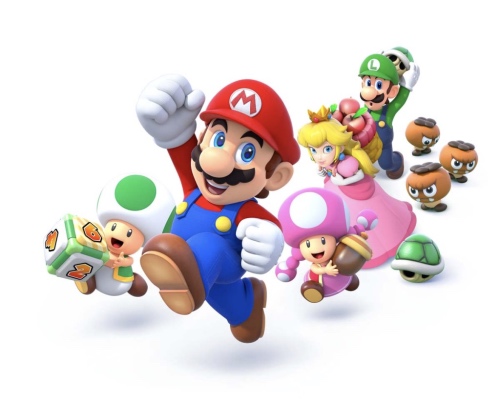
Mario Kart Tour Races to $200M revenue and 200M Downloads
-

Game Acquisitions Expand Globally in Q1 2021 with 280 Deals Worth $39 Billion Surpassing That in 2020
-

The Games Fund Launched a $50 Million Early Investment Fund to Invest in American and European Companies
 1
1 1
1